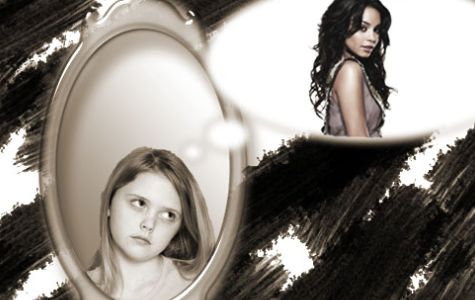Adding to the image

It is well known that early teens and pre-teens have warped images of their own bodies and how they should look. This has been blamed on the toys they play with, social media, as well as the overall mindset of today’s society. But what about the actors who portray them on movies, television shows, and advertisements who are actually many years older than their characters?
The age between childhood and the young adult years is strange, sometimes painful, often awkward, and never enjoyable. Children struggle to discover themselves, who they want to be and what they want to achieve. None are comfortable in their own skin at that point, and many look to fiction as guidance. Some look to music, others to books, and most find comfort in front of a screen. This is not always a negative; in books there is almost always an accurate representation of that age group and kids can usually relate to some character in some book. When it comes to creating these characters on screen and bringing the story to life, however, the actors chosen to play pre-teen characters are actually young adults.
Our culture sees that age and puberty as ugly and imperfect, so we pose actors who are well past that stage to play those characters, reinforcing the self-degrading attitude that children often already put on themselves. The easily influenced minds of pre-teens accept this image of what “teenagers” look like, then are perplexed when they do not magically morph into a model once they enter middle school. Mimicking this image also becomes the primary focus of school rather than learning.
The mindset of abandoning the awkward, lanky, ungainly years most of the population underwent must change, and this begins with how youth are portrayed. If TV shows, movies and advertisements keep skipping over this stage, going straight from cute and cuddly to early adulthood, then every generation will learn that puberty is wrong and disgraceful and that they are the only ones going through it.
However, if more actors are cast who look or are the age of their characters, many of these issues would be resolved. The people who pre-teens look up to would be a more accurate representation of themselves, therefore they would realize that this transition is natural and that it does not mean something is wrong with them. This is something that all pre-teens need to hear, and is the first step to mending our faulty society.

